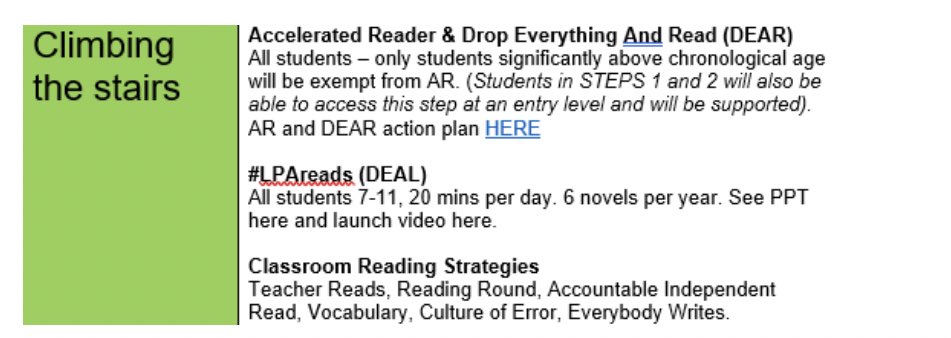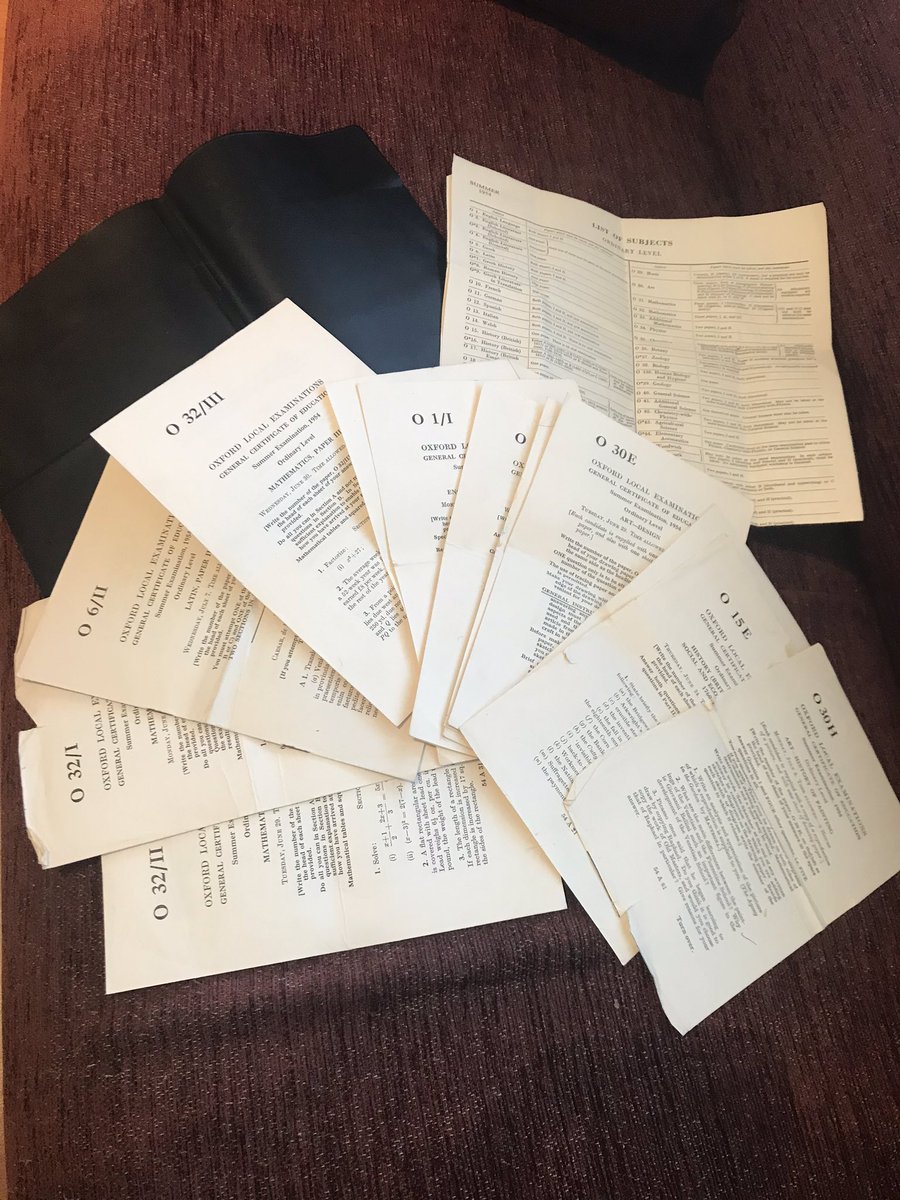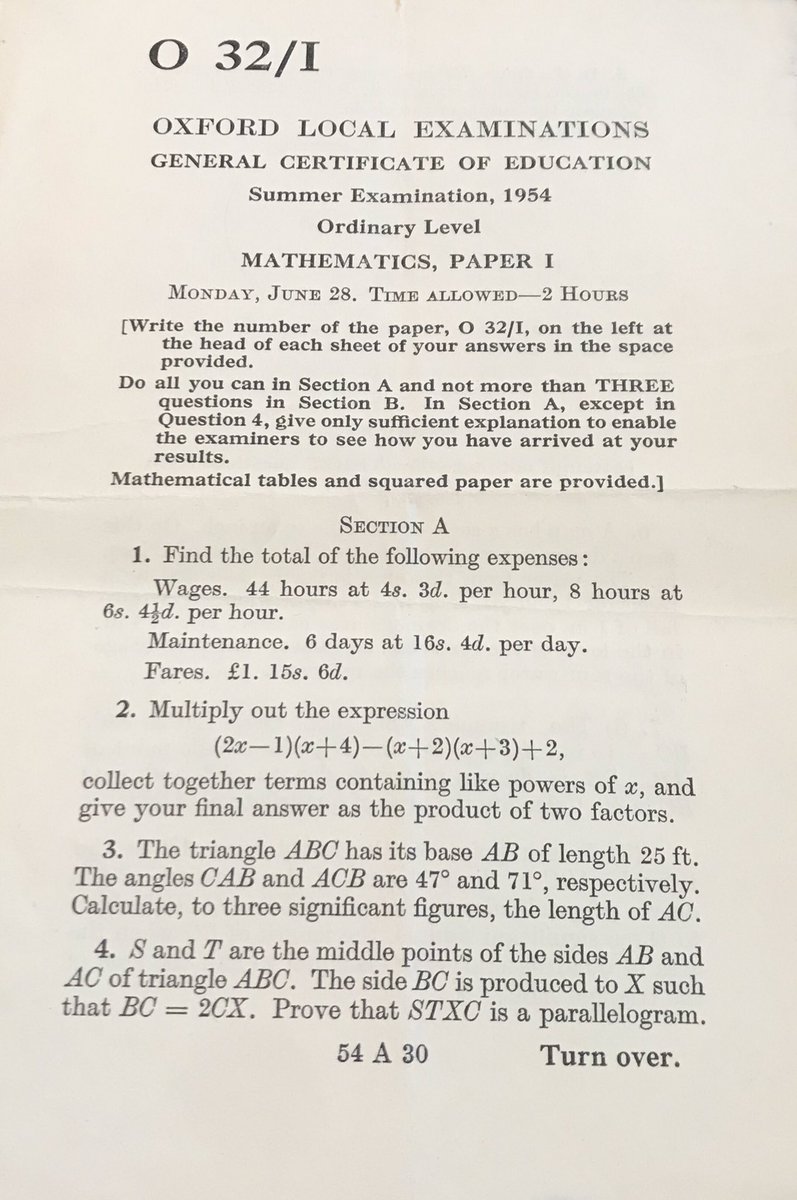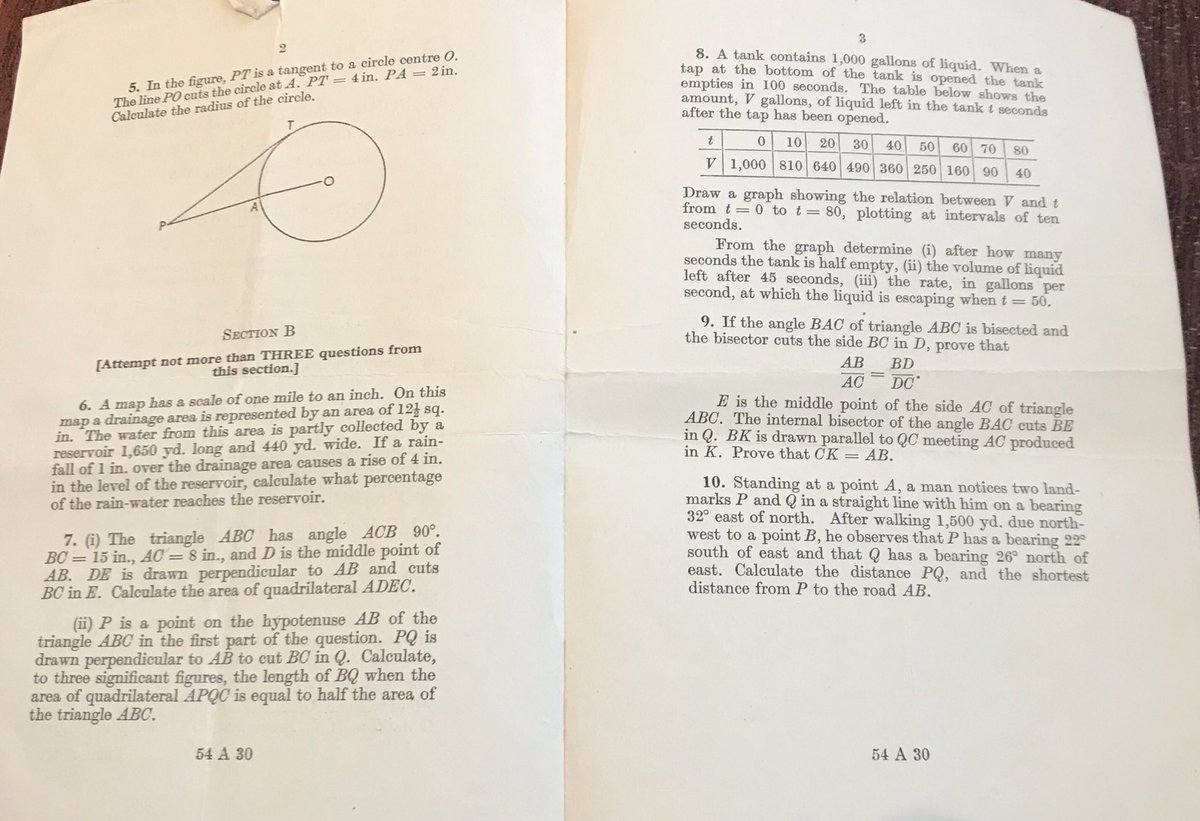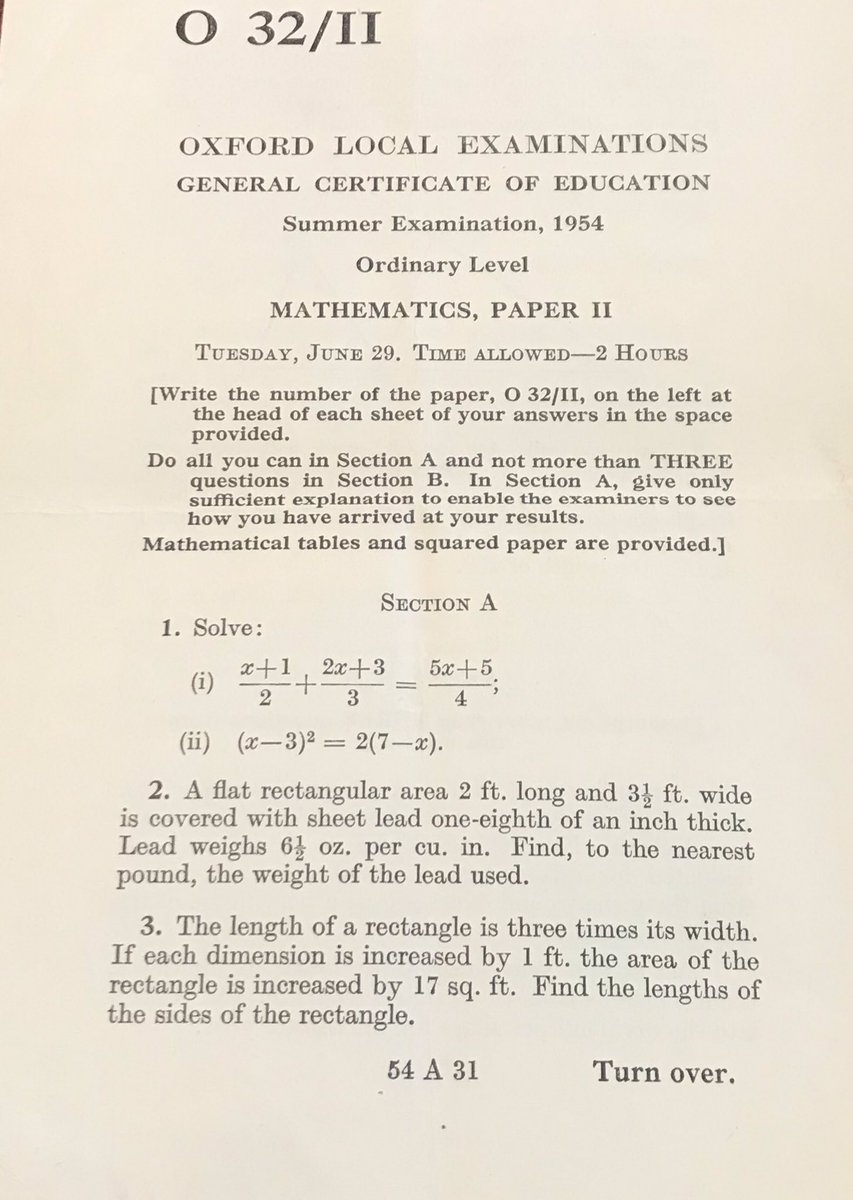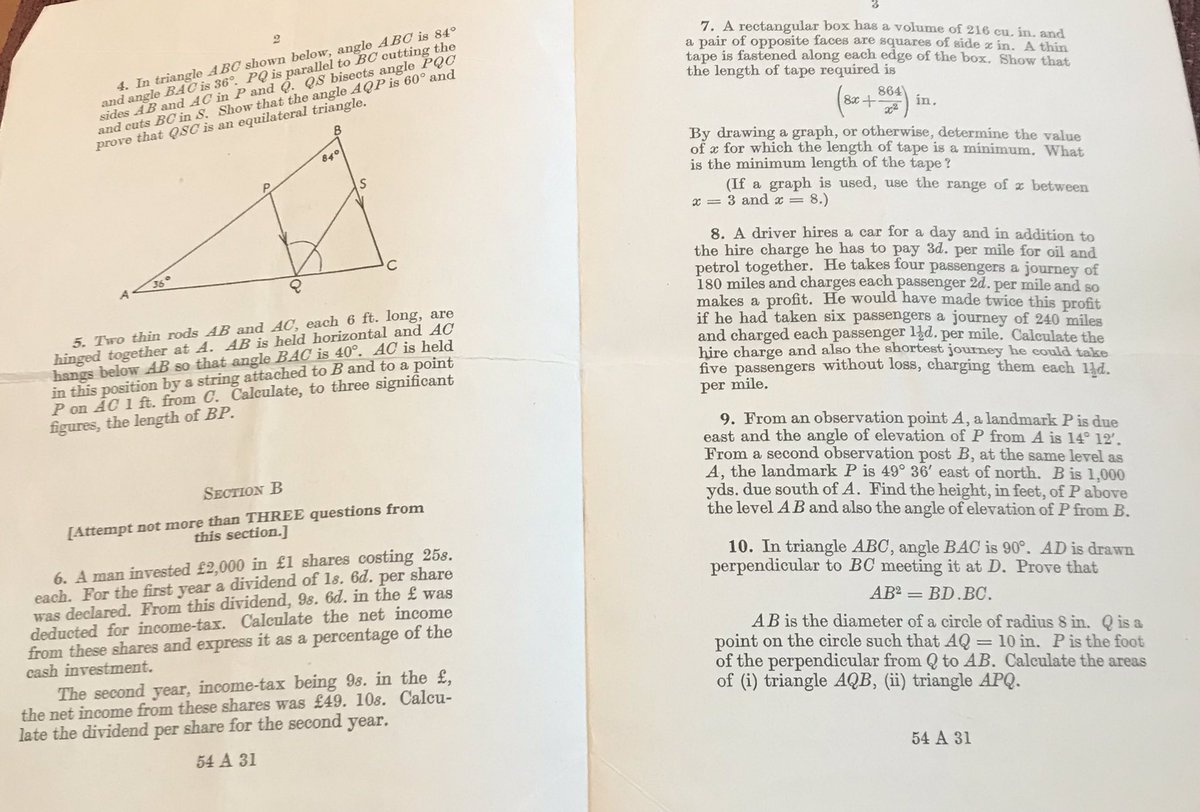I’m excited by our big push on reading @lodgeparkacad for the Summer term. Building on the groundwork we’ve put in place for 2 years now, we’re putting reading FRONT & CENTRE 🤩
Here’s how👇
(warning: long thread, probs should have done a blog 😂)
Here’s how👇
(warning: long thread, probs should have done a blog 😂)
1. The groundwork; being diligently laid since Feb 2019...
✅ Created a culture of reading for purpose & pleasure
✅ Teachers read daily
✅ Reading age tested for all
✅ 30 mins silent reading per day
✅ Big push on our chosen reading scheme
✅ High profile praise & rewards
✅ Created a culture of reading for purpose & pleasure
✅ Teachers read daily
✅ Reading age tested for all
✅ 30 mins silent reading per day
✅ Big push on our chosen reading scheme
✅ High profile praise & rewards
2. We’re channeling additional covid funding into reading, in particular supporting early readers to decode and become fluent.
Using the expertise of @cherb94teaching, we’re using @RuthMiskinEdu to teach phonics to those who need it most - in all year groups.
Using the expertise of @cherb94teaching, we’re using @RuthMiskinEdu to teach phonics to those who need it most - in all year groups.
3. We’ve created a ‘staircase’ for all readers, so all needs can be met.
It’s a staircase of books! 😍
It’s a staircase of books! 😍
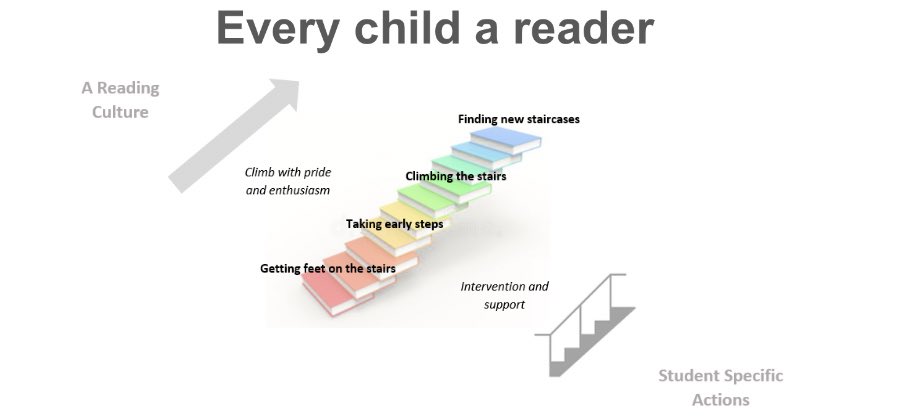
4. The ‘handrail’ represents the intervention and support for those setting feet on the stairs and taking early steps. 👇 

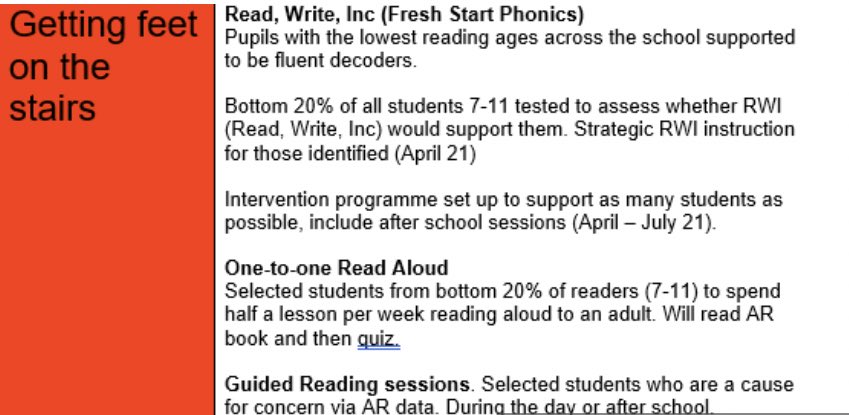
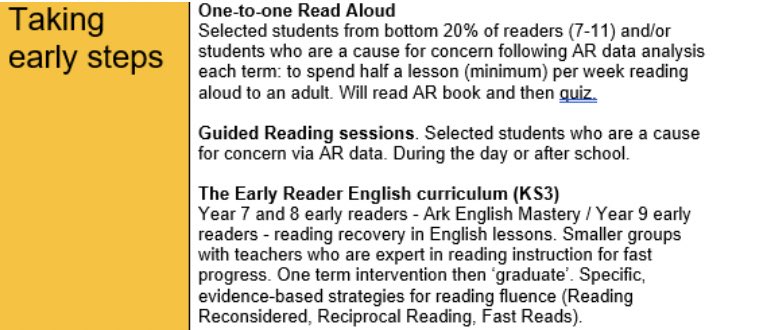
6. Big props to @bennewmark and @MrR_Storey for developing the strategy.
We’re not saying it’s perfect, but it’s right for our school right now. It will develop as time goes on. Happy to share! Access it here: docs.google.com/document/d/10-…
Thread continues👇(did warn you! 😂)
We’re not saying it’s perfect, but it’s right for our school right now. It will develop as time goes on. Happy to share! Access it here: docs.google.com/document/d/10-…
Thread continues👇(did warn you! 😂)
7. But that’s not all! The strategy also includes...
✅#LPAreads (also known as #DRETreads)
✅ LPA classroom reading strategies.
What are these? Let me tell you...
✅#LPAreads (also known as #DRETreads)
✅ LPA classroom reading strategies.
What are these? Let me tell you...
8. #LPAreads is an ambitious, exciting tutor reading programme that will see all students from Yr7-11 read 30 high quality novels during their time at school...
(30, plus 16 in English and numerous others in DEAR / personal reading!) #DRET50
That’s a lot of books! 😍
(30, plus 16 in English and numerous others in DEAR / personal reading!) #DRET50
That’s a lot of books! 😍
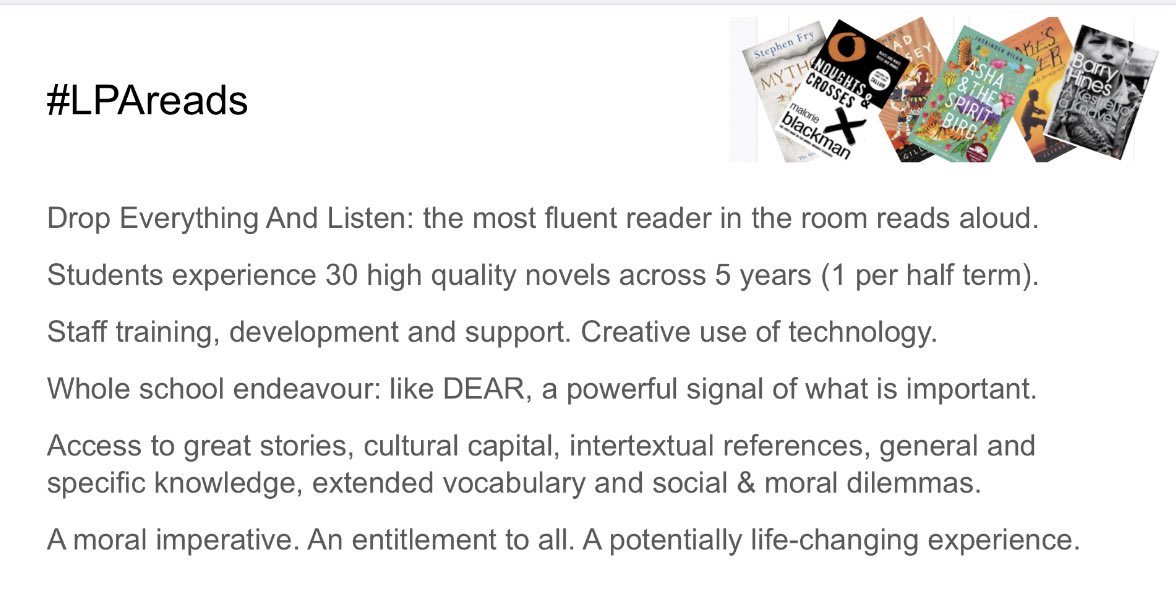
9. If anyone’s in doubt about the impact of reading high quality novels, I would highly recommend watching @Counsell_C’s two brilliant sessions for #EducatingNorthants.
Part 1:
Part 2:
Part 1:
Part 2:
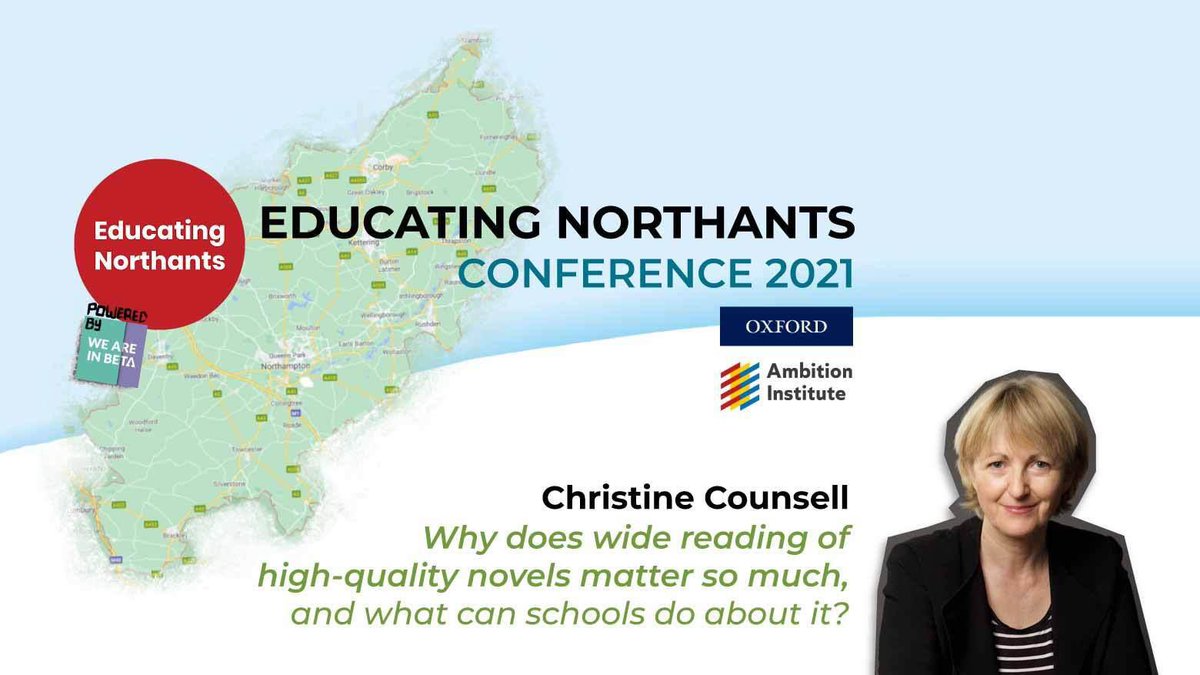
10. Or you could read this short thread that I did of some of the highlights from @Counsell_C’s presentations (no substitute for actually watching them, I might add!)
https://twitter.com/carlywaterman21/status/1376297760811540481
11. #LPAreads is our version of #DRETreads, an ambitious, transformational strategy to ensure all our children access over 30 high quality novels between Year 7 and Year 11.
✅ A moral imperative.
✅ An entitlement to all.
✅ Life-changing.
✅ Joyful, enriching, affirming.
✅ A moral imperative.
✅ An entitlement to all.
✅ Life-changing.
✅ Joyful, enriching, affirming.
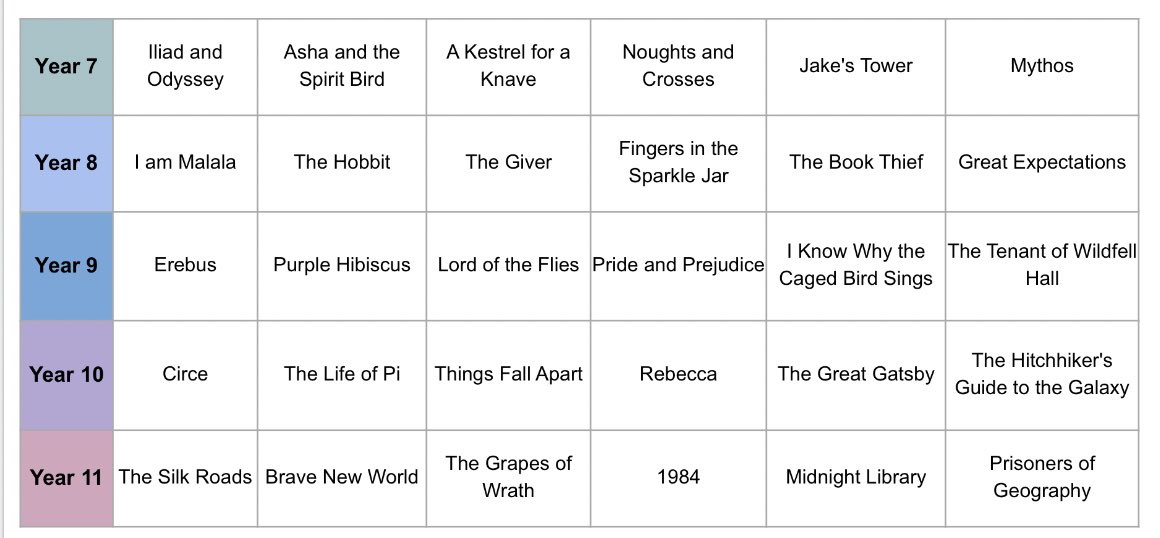
12. LPA classroom reading strategies are a combination of stuff we love from @Doug_Lemov’s Reading Reconsidered & TLAC, and some other approaches we’ve been trialling for some time. It’s all about how we support reading in ALL subjects & how we remove any barriers to access👇 
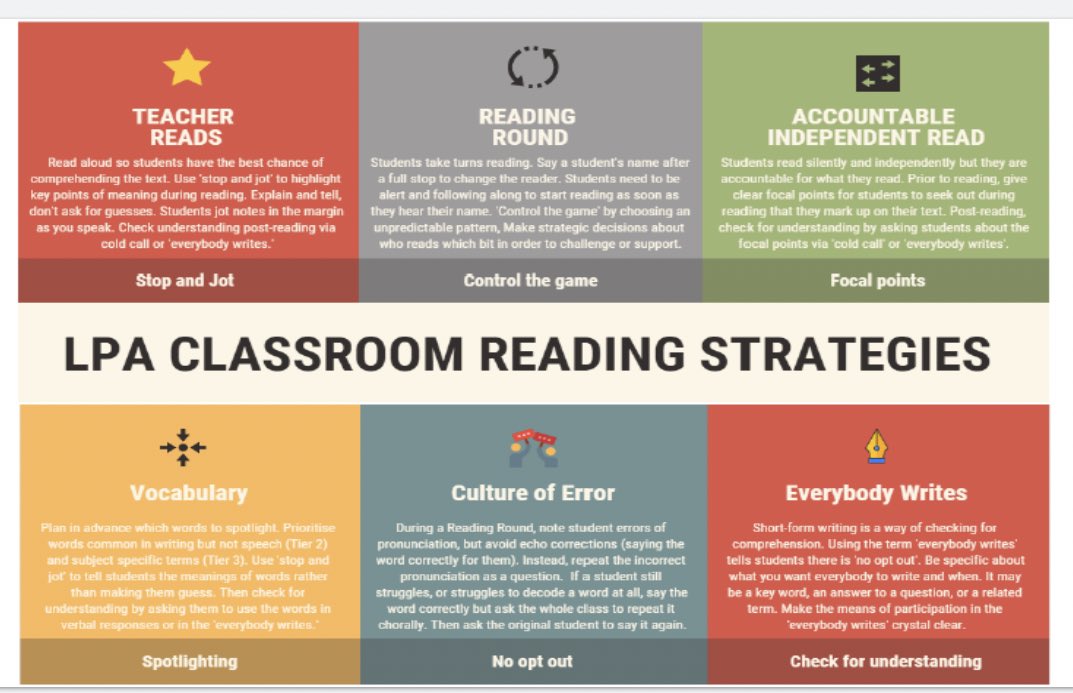
13. Teacher reads - the most expert and fluent reader in the room reads aloud. Important to use when comprehension is needed for access to the next task. The teacher stops at key points of clarification. Students ‘stop and jot’ to support understanding. 
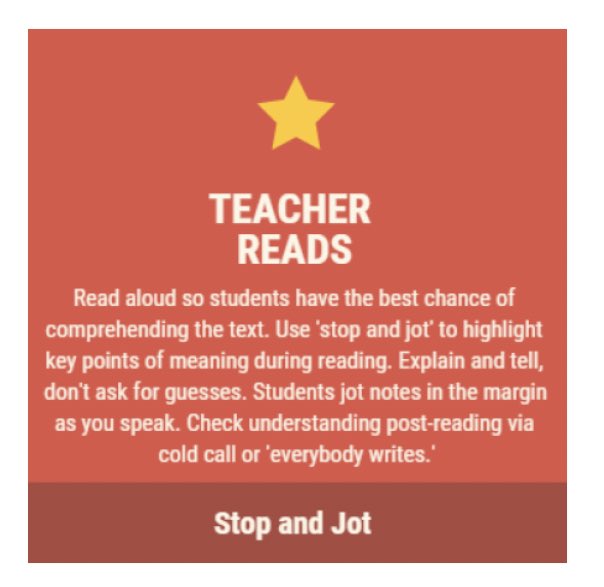
14. A reading round is where everyone takes a turn reading aloud. Fantastic way to check fluency. Keep it high paced. Use your pre-read to distribute parts strategically to support or challenge. You know your kids best. 👍 
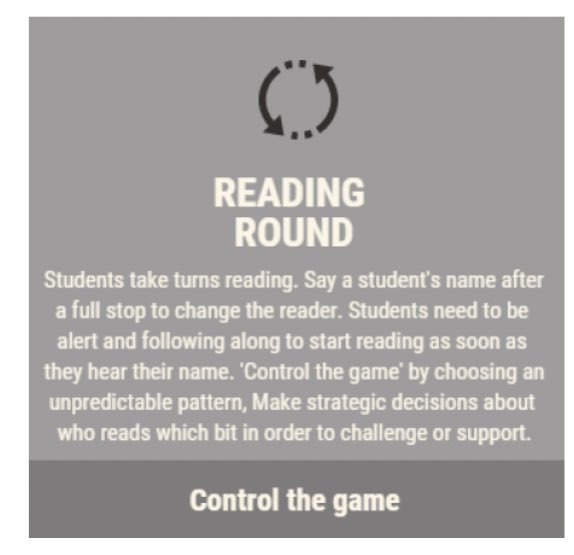
15. An Accountable Independent Read is silent reading but with purposeful, predetermined focal points. Makes kids responsible for what they read. Discourages kids from feigning reading... which is super tempting when you find reading tough. Got to be effortful to work! 👍 
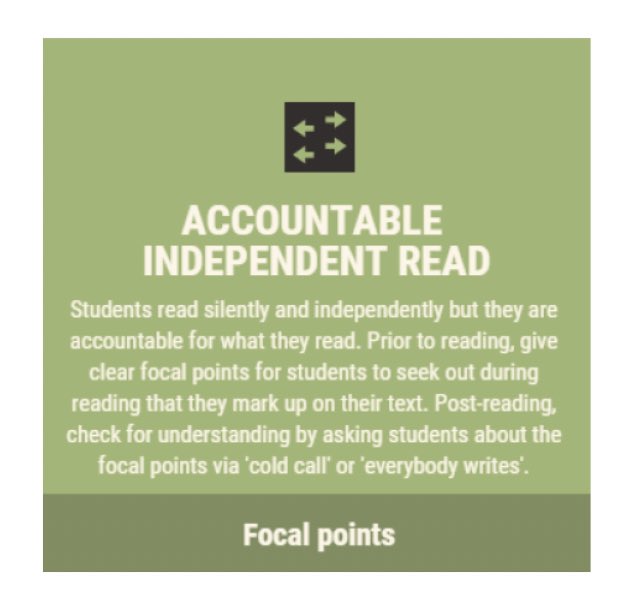
16. Vocabulary spotlighting is crucial... but don’t ask for guesses. Instead, explain. Students ‘stop and jot’ then apply understanding via responses to teacher questioning or in writing. Focus on tier 2&3. Every word explained is a gift given. Make a fuss of words. They’re ace. 
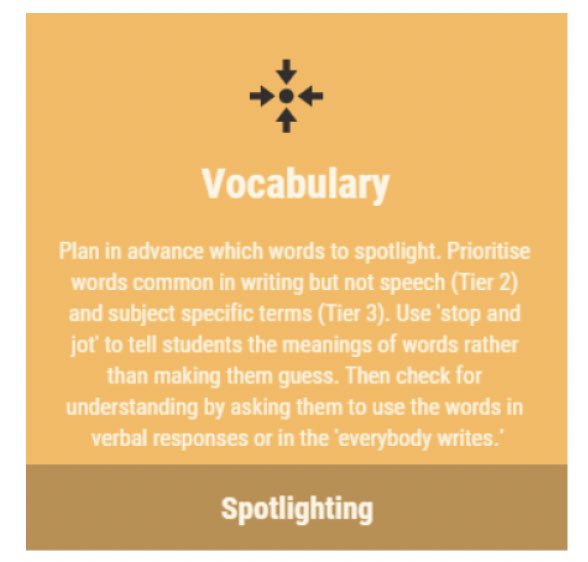
17. For ‘no opt out’, you’ve got to create a culture of error - where it’s good to make mistakes. We gain through getting it wrong first. No one is embarrassed. Avoid echo corrections. Instead, say it back as a question. Saying it out loud, correctly, or chorally, is the goal. 
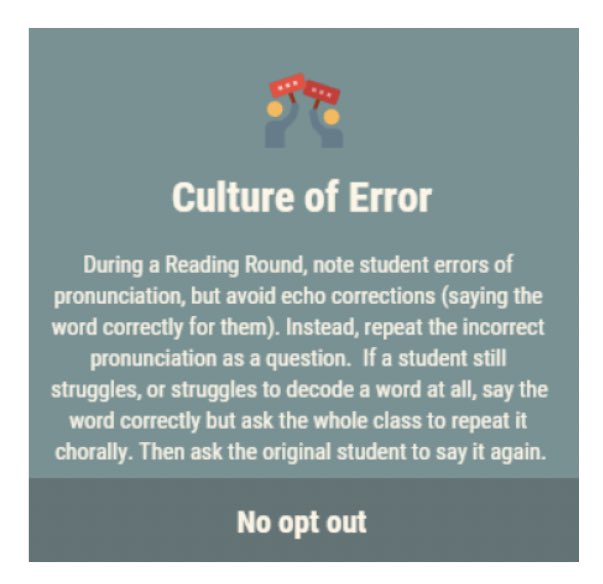
18. Everybody Writes is a great way of checking for understanding following reading. Build it in regularly. Keep it short for easy, instant checking. We like using white boards 👍 
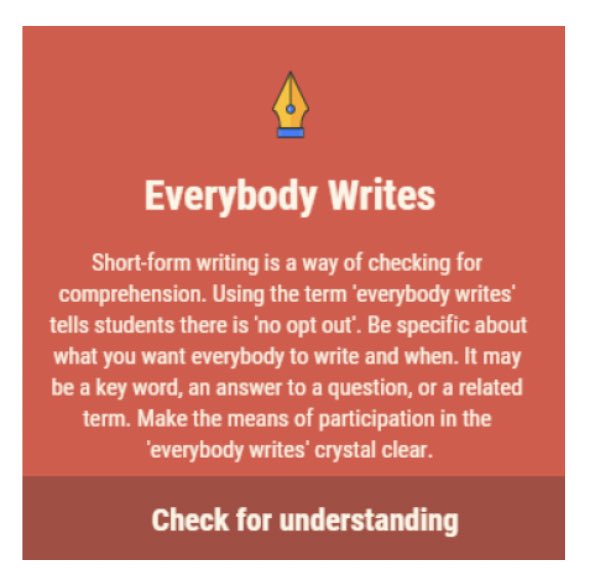
19. And all of that is why I’m so excited for the term ahead @lodgeparkacad (as well as loads of other stuff!). #lovemyjob
#EveryChildAReader 🤩
Recorded a video all about it for anyone who might be interested. Feel free to watch and share! 👇
drive.google.com/file/d/1A25OBe…
#EveryChildAReader 🤩
Recorded a video all about it for anyone who might be interested. Feel free to watch and share! 👇
drive.google.com/file/d/1A25OBe…
• • •
Missing some Tweet in this thread? You can try to
force a refresh

